Commercial HVAC Services in San Antonio Texas
Are you looking for commercial HVAC services in San Antonio? Look no further than the experts at Kidd Mechanical Heating, Air Conditioning, and Refrigeration.
We provide commercial HVAC services and more to business owners all over the city. Our team of experienced professionals is dedicated to helping you find the right cooling and heating solutions for your business. Keep reading to learn more about the commercial HVAC services we provide and reach out to us to get a quote today!
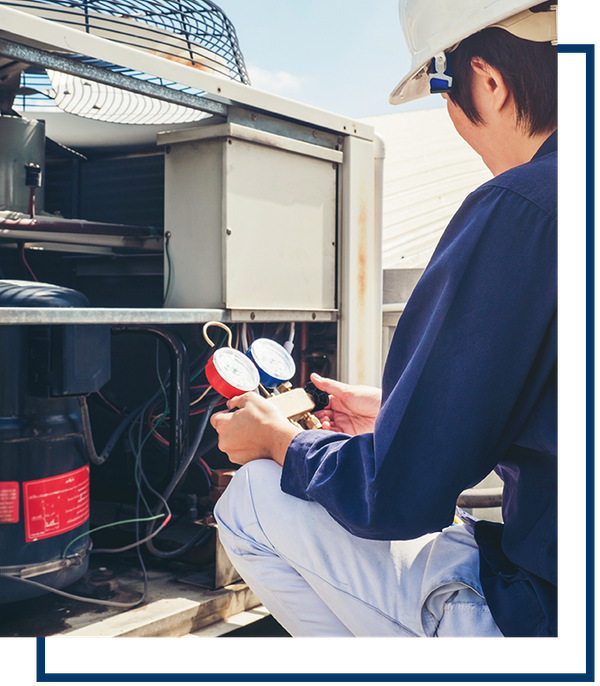
What is Commercial HVAC?
Commercial HVAC is a term used to describe the various types of cooling and heating systems that are designed for commercial use. These systems are typically larger and more powerful than residential HVAC systems, as they need to be able to cool or heat large spaces quickly and efficiently. Commercial HVAC systems can include rooftop units, split systems, packaged units, and more.
In the San Antonio heat, it's essential to have a functioning commercial HVAC system in your building — whether that's a grocery store or a gas station. Our team at Kidd Mechanical can help you install and maintain a system that keeps you, your employees, and your customers cool and comfortable all year long.
How Does a Commercial HVAC System Work?
A commercial HVAC system works by circulating air throughout a space using a network of ducts. The air is then cooled or heated using a variety of methods, depending on the type of system that is being used.
Warm or cool air is then circulated back into the room through a series of vents. The temperature in the room is regulated using a thermostat, which turns the system on and off as needed to maintain the desired temperature.
Distribution Systems
There are two main types of distribution systems that are used in commercial HVAC systems: forced air and hydronic. Forced air systems use a network of ducts to circulate air throughout a space, while hydronic systems use a network of pipes to circulate water or another fluid.
Refrigeration Systems
Refrigeration systems are another important part of commercial HVAC systems. These systems use a variety of methods to cool air, including evaporative cooling and absorption cooling. Refrigeration systems are often used in conjunction with other types of HVAC systems to provide the best possible cooling for a space.
Controls
Controls are an important part of commercial HVAC systems. They allow businesses to regulate the temperature in a space, as well as the amount of air that is being circulated. Controls can be manual or automatic, and they can be simple or complex, depending on the needs of the business.
Types of HVAC Systems for Commercial Buildings
There are a variety of HVAC systems that are designed for commercial use. The type of system that is right for a business will depend on the size and layout of the space, as well as the climate.
Some common types of commercial HVAC systems include:

Packaged Systems
Packaged systems are self-contained HVAC units that are typically installed on the roof of a commercial building. Packaged systems can include both heating and cooling components, or they can be designed for one or the other.
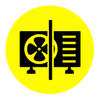
Split Systems
Split-systems are commercial HVAC units that have two main parts: an outdoor unit and an indoor unit. The outdoor unit contains the compressor, while the indoor unit houses the evaporator coil. Split systems can be used for cooling or heating, or they can be designed for one or the other.

Rooftop Units
Rooftop units are another type of commercial HVAC system. These units are typically installed on the roof of a building and can include both heating and cooling components. Rooftop units are often used in conjunction with other types of HVAC systems, such as split systems or packaged systems.
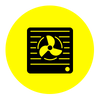
VRF Systems
VRF systems, or variable refrigerant flow systems, are commercial HVAC units that use a refrigerant to cool and heat a space. VRF systems are typically used in larger commercial spaces, such as office buildings or warehouses.
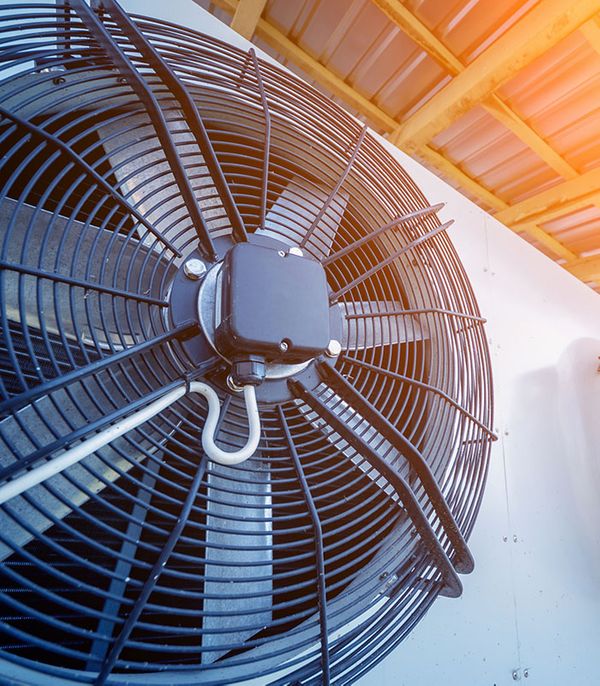
What Makes Commercial HVAC Systems Different Than Residential Systems?
Commercial HVAC systems are different from residential systems in a few ways. First, commercial HVAC systems are typically larger and more powerful than residential systems. This is because commercial HVAC systems need to be able to cool or heat large spaces quickly and efficiently.
Second, commercial HVAC systems often use a variety of methods to cool or heat a space. This is because commercial spaces can have a variety of different climate needs, depending on the business that is being conducted.
Finally, commercial HVAC systems often use controls to regulate the temperature in a space. This is because commercial spaces often need to be kept at a specific temperature for the comfort of employees or customers.
Common Issues With Commercial HVAC Systems
There are a few common issues that can arise with commercial HVAC systems:
Short Cycling
Short cycling is an issue that can occur with commercial HVAC systems. Short cycling occurs when an HVAC system turns on and off more frequently than it should. This can be caused by a variety of factors, including a dirty air filter or a faulty thermostat.
Duct Leaks
Duct leaks are another common issue with commercial HVAC systems. Duct leaks occur when the ductwork that is used to circulate air in a commercial space is not sealed properly. This can cause air to leak out of the ducts, which can lead to a loss of energy and an increase in utility bills.
Dirty Filters
Dirty filters are a common issue with commercial HVAC systems. When the filters in an HVAC system become dirty, they can restrict airflow and cause the system to work harder than it should. This can lead to a loss of energy and an increase in utility bills.
Dirty Condenser Coils
Dirty condenser coils are another common issue with commercial HVAC systems. When the coils in an HVAC system become dirty, they can’t dissipate heat properly. This can cause the system to work harder than it should and can lead to a loss of energy and an increase in utility bills.
Noises
Noises are a common issue with commercial HVAC systems. When an HVAC system makes noises, it can be disruptive to employees or customers. Additionally, noises can be a sign of a more serious problem, such as a loose belt or bearings.
Malfunctioning Economizer
A malfunctioning economizer is an issue that can occur with commercial HVAC systems. An economizer is a device that controls the amount of fresh air that is brought into a commercial space. When an economizer isn’t working properly, it can cause the HVAC system to work harder than it should and can lead to a loss of energy and an increase in utility bills.
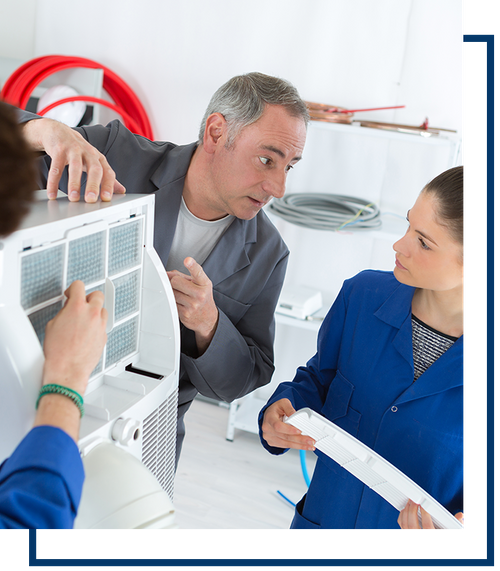
How Can I Prevent Issues With My Commercial HVAC System?
There are a few things that you can do to prevent issues with your commercial HVAC system:
Have your HVAC system inspected and serviced regularly by a professional.
Replace the air filters in your HVAC system regularly.
Make sure that the ductwork in your commercial space is properly sealed.
Keep the area around your HVAC system clean and free of debris.
If you have a rooftop HVAC unit, make sure that it is properly secured.
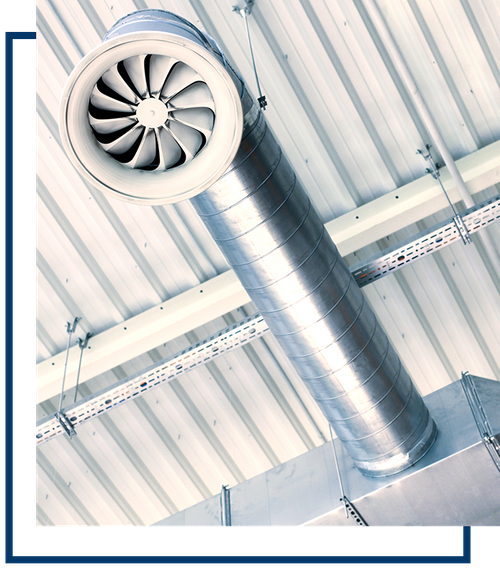
Commercial HVAC System Maintenance
It’s important to have your commercial HVAC system inspected and serviced regularly by a professional. This will help to ensure that your system is running efficiently and that any potential problems are caught early.
Commercial HVAC system maintenance typically includes:
Inspecting the air filters and replacing them if necessary
Inspecting the ductwork and repairing any leaks
Inspecting the coils and cleaning them
Inspecting the fan belt and replacing it
Inspecting the bearings and lubricating them
The Benefits of Properly Maintaining Your Commercial HVAC System
There are a few benefits of properly maintaining your commercial HVAC system:
Improved efficiency: When your commercial HVAC system is running efficiently, it can save you money on your energy bills.
Prolonged lifespan: Properly maintaining your commercial HVAC system can help to prolong its lifespan.
Fewer repairs: By having your commercial HVAC system serviced regularly, you can help to prevent major repair issues from occurring.
Improved indoor air quality: By keeping your commercial HVAC system clean, you can help to improve the indoor air quality in your commercial space.
Reduced noise: Properly maintaining your commercial HVAC system can help to reduce the amount of noise it makes.
How Long Should Your Commercial HVAC System Last?
With proper maintenance, your commercial HVAC system should last for 15-20 years. If you don’t maintain your system properly, it may only last for 12-15 years.
Are High-Efficiency Systems Worth The Extra Investment?
High-efficiency commercial HVAC systems are more expensive to purchase than standard systems. However, they can save you money in the long run because they are more energy-efficient. High-efficiency commercial HVAC systems typically have an AFUE rating of 90% or higher.
Get a Quote for Commercial HVAC Services in San Antonio Today!
Don't let your business suffer from the heat of the San Antonio summer sun. If you’re looking for commercial HVAC services in San Antonio, contact us today! We offer a wide range of commercial HVAC services, including installation, repair, and maintenance. We also offer 24/ hour emergency service so that you can get the help you need when you need it. Contact our team at Kidd Mechanical Heating, Air Conditioning, & Refrigeration to get a quote for commercial HVAC services including installation, maintenance, and repairs in San Antonio today!
